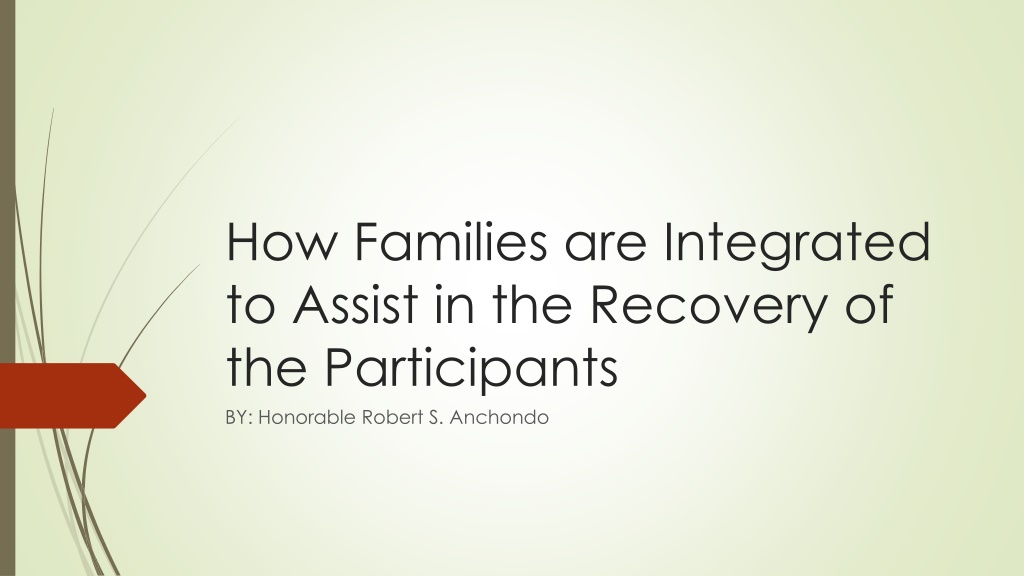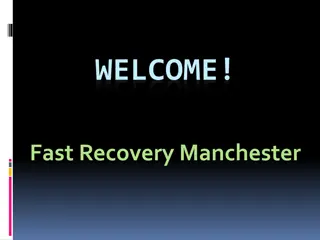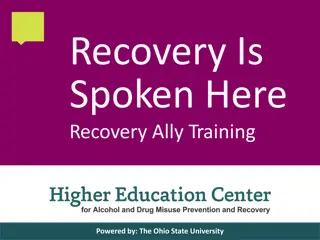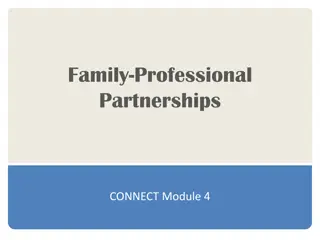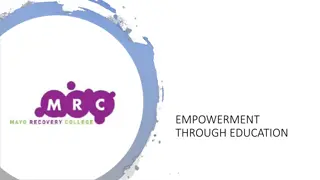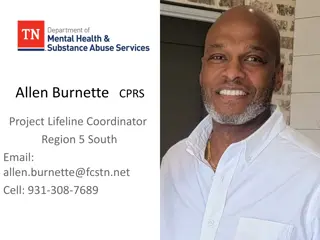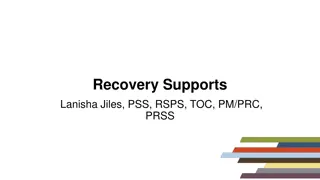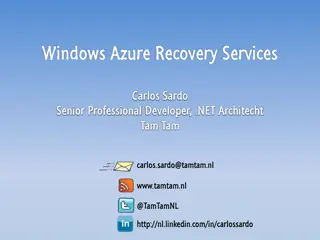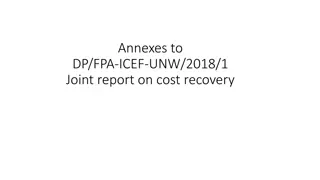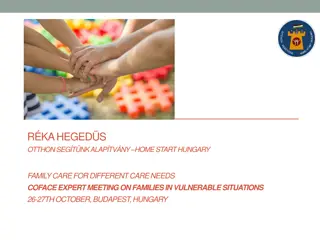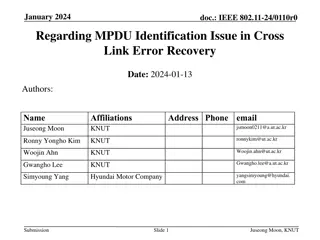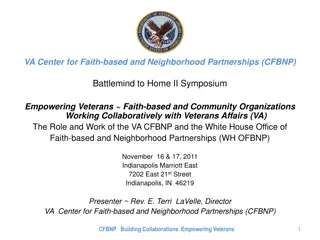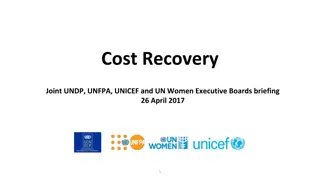Integrating Families for Participant Recovery: Strategies and Partnerships
Families play a crucial role in supporting participants' recovery from high-risk behaviors. Understanding family dynamics, readiness for change, and potential barriers can enhance treatment effectiveness. Collaboration with agencies, organizations, and community partnerships further strengthens the support network for participants. Educating life skills and leveraging community partners contribute to empowering participants towards lasting change.
- Family integration
- Recovery support
- Community partnerships
- High-risk behaviors
- Treatment effectiveness
Download Presentation

Please find below an Image/Link to download the presentation.
The content on the website is provided AS IS for your information and personal use only. It may not be sold, licensed, or shared on other websites without obtaining consent from the author. Download presentation by click this link. If you encounter any issues during the download, it is possible that the publisher has removed the file from their server.
E N D
Presentation Transcript
How Families are Integrated to Assist in the Recovery of the Participants BY: Honorable Robert S. Anchondo
Family Unit The family is the foundation of support, even if we have to hear the hard truth. They comfort us and even put us in our place. It builds up a person s character and personality.
Readiness to change Are there adequate resources to make a lasting change (support/peer groups, counseling and life coaching services) Barriers Getting to know the family dynamic establishes a foundation for treatment and services Relapse learning the history of the home prepares the team when relapse occurs
Target Population Eligibility Criteria High Risk / High Need Two or more DWI Non-Compliant with regular probation conditions (failed breath analysis, new dwi arrests, unwilling to arrive to scheduled appointments)
New Participant What do we need to know about this participant Breaking down the dynamics Social Status What recreational habits are potential triggers What is the employment status Family How will the home environment impact the program Does the family support recovery
Agency, Organization, and Community Partnerships Partnerships are an essential component of the DWI court model. They enhance credibility, bolster support, and broaden available resources. With the cooperation of other agencies, as well as community organizations the court has formed a partnership in support of the goals of the DWI program.
Community Partners One of our community partners is a for profit organization that assists this program to provide the following: Providing services to the individual-mental health Services to the family Couples/Marriage counseling
Educating life skills through playful activities to motivate and empower participants Sesame Street- working with children and parents using video and activity, team building, cooking (one hour)
OUR SESAME MISSION Serving families by Educating life Skills through playful Activities to Motivate and Empower
Staffing Weekly staffing is where the entire team has the opportunity to discuss the family dynamic. Public Defenders, District Attorney s Office, Law Enforcement, Probation, Counseling services and treatment all meet with the Judge to breakdown the weekly encounters with the participant.
Staffing Compliance officers give detailed reports on: the environment and behaviors from family members or the participant that raise concerns. Counseling services and treatment: bring forth information necessary to raise concerns to team, to notice potential relapses, or to praise progress
Develop Case Management Strategies There are five core functions of case management in a DWI court setting: 1) assessment; 2) planning; 3) linking; 4) monitoring; and 5) advocacy. Family members are also included in the case management process, they are referred to outside agencies for help.
Address Transportation Issues Transportation/Support Is family/friends willing to assist with transportation to get to appointments/work? Addressed during family meeting with the team, informed if participant is not allowed to drive, and as needed during the program.
Compliance We partner with the El Paso County Sheriff s Office and the El Paso Police Department. The officers assigned to the court assist with the following: Home visits Conditions of the home are recorded, drug and alcohol tests are administered, interview with persons living in the home are conducted. Employment verification Surveillance Monitor criminal activity
Take a Judicial Leadership Role Judge speaks to the participant s family members and explains the importance of their role in the participants recovery. He explains the importance of having their support and contact with the DWI team. The success or failure of a DWI court in large part depends on the convictions held and strength exuded by the judge as leader of the program.
